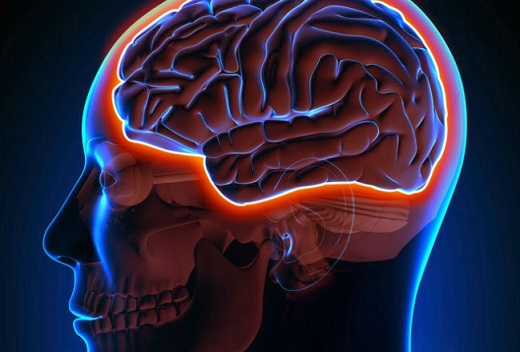Novel Insights into Blood Brain Barrier Neuropathology in Schizophrenia and Bipolar Disorder
Nikhil Prasad Fact checked by:Thailand Medical News Team Jan 16, 2025 11 months, 2 weeks, 2 days, 11 hours, 36 minutes ago
Medical News: Researchers from Upstate Medical University-New York, USA, the University of New South Wales-Australia, and the Stanley Medical Research Institute-Maryland, USA have made significant strides in understanding the connection between blood-brain barrier (BBB) dysfunction and serious mental health conditions like schizophrenia and bipolar disorder. Their work shines a light on how inflammation in the brain could lead to alterations in this critical barrier, which protects the brain from harmful substances.
 Novel Insights into Blood Brain Barrier Neuropathology in Schizophrenia and Bipolar Disorder
Novel Insights into Blood Brain Barrier Neuropathology in Schizophrenia and Bipolar Disorder
This
Medical News report explores their groundbreaking findings, detailing the molecular and structural changes in the BBB linked to these psychiatric disorders. The study specifically focuses on the midbrain’s ventral region, an area pivotal for dopamine production and implicated in mental health.
The Blood-Brain Barrier: A Vital Shield
The blood-brain barrier acts as a gatekeeper, maintaining the delicate environment of the brain by preventing harmful substances in the blood from entering. It is made up of endothelial cells, tight junction proteins, and a supportive basement membrane. When this barrier is compromised, as suggested in several neurological and psychiatric disorders, it can lead to inflammation and an influx of immune cells that disrupt normal brain function.
In this study, the team examined post-mortem midbrain tissue from individuals diagnosed with schizophrenia, bipolar disorder, and healthy controls. The samples were further classified into “high” and “low” inflammation groups based on molecular markers of neuroinflammation.
Key Findings: Inflammation Alters the Blood-Brain Barrier
The researchers discovered elevated levels of certain molecules that indicate BBB disruption in individuals with high inflammation. These included:
-Macrophage Marker CD163 and Chemokine CCL2:
CD163, a marker of immune cells called macrophages, and CCL2, a chemokine that attracts these cells, were significantly higher in individuals with schizophrenia and bipolar disorder who showed high inflammation.
This finding aligns with the hypothesis that neuroinflammation draws macrophages to the brain, potentially disrupting the BBB.
-Adhesion Molecules ICAM1 and PECAM1:
ICAM1 and PECAM1 levels, which help immune cells adhere to blood vessel walls and migrate across the BBB, were notably elevated in high inflammation cases.
Schizophrenia cases showed particularly strong changes, suggesting more pronounced immune cell migration into the brain compared to bipolar disorder.
-Tight Junction Proteins:
Claudin-5 (CLDN5) levels were higher in high inflammation groups, but its distribution appeared fragmented along blood ves
sels in schizophrenia and bipolar disorder.
Occludin (OCLN), another tight junction protein, was decreased in schizophrenia but not bipolar disorder, hinting at distinct BBB changes between the two conditions.
-Basement Membrane Protein Collagen IV (ColIV):
ColIV, a major component of the BBB’s supportive structure, showed reduced levels in bipolar disorder but not in schizophrenia, suggesting different mechanisms of BBB alteration.
Morphological Changes in the Midbrain
The study also uncovered structural changes in the blood vessels. Immunostaining revealed fragmented and disorganized patterns of Claudin-5 in high inflammation groups, with bursts of Claudin-5-positive processes extending into brain tissue. These alterations may signify new or damaged blood vessel growth.
Interestingly, these changes were observed near dopamine-producing neurons, potentially linking BBB dysfunction to disruptions in dopamine signaling - a hallmark of schizophrenia and bipolar disorder.
Implications for Treatment
The distinct molecular signatures of BBB changes between schizophrenia and bipolar disorder provide valuable insights. Targeting inflammation and BBB dysfunction could offer new therapeutic avenues. For instance, regulating chemokine levels like CCL2 or stabilizing tight junction proteins may help restore BBB integrity and reduce neuroinflammation.
The findings also highlight the need to consider individual inflammation levels when developing treatments. This approach could help identify which patients might benefit most from therapies targeting the immune system or the BBB.
Study Limitations and Future Directions
While the study provides compelling evidence of BBB disruption, it has some limitations. The inability to map the exact cellular sources of these molecular changes or quantify protein levels for certain markers limits the conclusions. Future studies should explore these aspects and assess how these BBB alterations directly influence brain function and behavior.
Conclusion
This research marks a significant step in unraveling the complex relationship between the blood-brain barrier and mental health disorders. The molecular and structural changes identified in the BBB of individuals with schizophrenia and bipolar disorder underscore the role of inflammation in these conditions. By better understanding these processes, researchers can pave the way for more effective and personalized treatments.
The study findings were published on a preprint server and are currently being peer reviewed.
https://www.researchsquare.com/article/rs-5776506/v1
For the latest on the Blood-Brain Barrier, keep on logging to Thailand
Medical News.
Read Also:
https://www.thailandmedical.news/news/impact-of-covid-19-on-blood-brain-barrier-and-alzheimer-risk
https://www.thailandmedical.news/news/covid-19-causes-disruptions-in-blood-brain-barrier-via-mitochondria-impairment-and-endothelial-dysfunction
https://www.thailandmedical.news/news/scientists-from-singapore-discover-plasma-biomarkers-that-identify-blood-brain-barrier-dysregulation-in-alzheimer-s-disease
